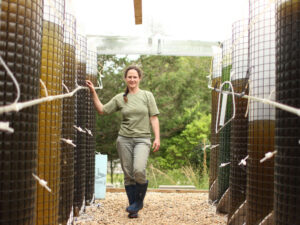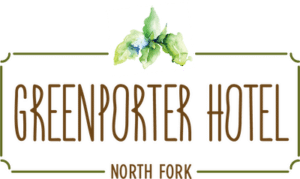
March 8th marks International Women’s Day around the world and here on the North Fork of Long Island, we are celebrating some of the contributions that North Fork women have made to this agricultural and maritime community. Throughout the next seven days that lead up to March 8th, International Women’s Day, we are featuring a different North Fork woman each day.
It was a difficult selection process considering how many amazing women make up our unique region but as we could only select seven for this week-long series.
The selection of women being featured ranges from farmers to writers, winemakers to yoga teachers and community activists, all of whom have been influenced by our unique region and whose work is representative of our community.
The common denominator in exploring the journey of all these women are as follows: All are experts in their field and posses enormous amounts of knowledge in their profession, whether through former education or otherwise. All have an entrepreneurial nature and are incredibly hard workers as they’ve all juggled multiple jobs While launching their businesses. Last but not least none of them pursued their businesses in order to become economically wealthy as some of the professions have proven to be more profitable than others. All of these women have put their passions and the greater good of their communities first and have all excelled as a result.
Today, March 1st begins our series with Karen Rivara, entrepreneur, oyster farmer, marine biologist and President of the Long Island Farm Bureau.
Karen grew up in the Great Lakes region of New York, playing with frogs and frolicking around the aquatic life of the area. Spending hours in the pond of her backyard, led her to exploring her passion while watching episodes of The Undersea World of Jacques Cousteau. This along with her interest in science is what eventually led her to take a class abroad in marine zoology and to eventually to pursue her studies at Southampton College in biology with a concentration in marine science. Her studies, hard work and love of marine life resulted in her oyster farm, Peconic Pearls in Southold. With this venture Karen is having an impact on the health of our local waters and the quality of life in Eastern Long Island and the sustainability of our planet.
Question and Answer excerpts:
Tell us about the journey that has led you to your current career?
After I finished college I went to work as a research technician for a professor at Stonybrook University, who was studying the economic viability of shellfish hatcheries and exploring the impact of the cost of the seed for the shellfish on the industry. This is where I worked there for 3 years and this job led to another role in the same industry at the Bluepoint Company where I was in charge of growing algae. However, the low pay and lack of equal opportunities in this male-dominated industry led me back to work for another woman at Stonybrook. It was at this point I realized that I wanted to become an oyster farmer. When I decided to start my business I worked several jobs from working in a shopping mall and cleaning houses on the side, in addition to my full time job so that I could buy my first boat and move forward.
When considering that we are celebrating international women’s day, how do you feel your career choice can inspire other women to improve their lives and their communities?
I feel that running my own company gives me the opportunity to be a role model for young women who might feel insecure about excelling in math or science or just “being the smart girl”. My work contributes to the preservation of our local waters because growing oysters means cleaner waters. Oysters and shellfish are filter feeders who eat microscopic algae called phytoplankton.
Please share your views on the economic viability of your career choice and how can it be possible for other women to support themselves in the pursuit of their aspirations?
I feel that any aspiring entrepreneur needs to understand that sacrifices need to be made to pursue non-traditional roles or to start their own business. If you educate yourself in the field you want to enter, you will find your way. Also it is important that we introduce our youth to the business of farming so that we are nurturing the future of the agri-industry in this country. Our schools have a responsibility to include agriculture into the curriculum.
What advice would you give your younger self?
I would tell myself to be yourself and not compete as anyone other than yourself. I would also say to own your own image without being brainwashed by what the media expects us to look like or be like but rather than to be honest about who you are and find you way to success within that.


